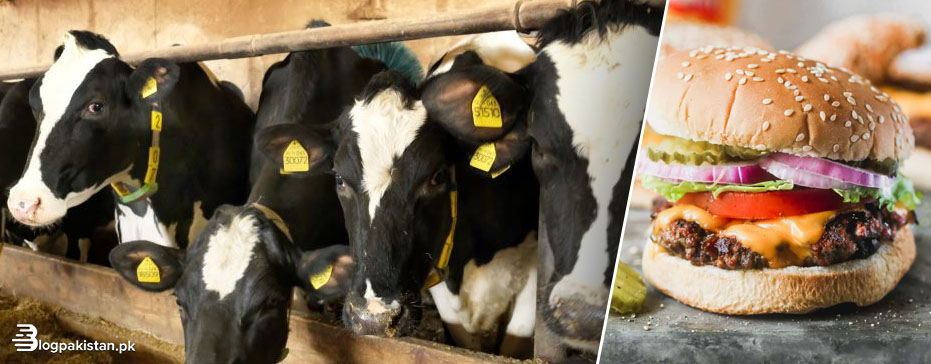Making a beef burger, that delectable treat we often savor, involves a surprisingly large amount of water, approximately 2,400 liters, according to the World Economic Forum.
Wondering why such a substantial amount? Well, the process of cattle farming demands water, from nurturing the animals to growing their feed.
This extensive farming cycle consumes considerable water at every stage, ultimately culminating in the creation of a single burger in your hand.
Beef Farming and Water Scarcity
In various parts of the world, the issue of water security is growing in importance. Not only does beef production require substantial water resources, but it also necessitates reliable and secure sources of water.
This challenge becomes particularly critical in regions afflicted by drought, like Australia and South Africa.
For developing nations like Pakistan, the situation is even more dire, with a staggering 80% decrease in water availability per capita over the last seven decades.
Alternative Sources of Protein
Given the escalating environmental impact of beef production, it is imperative to explore alternative sources of protein. These alternatives offer more sustainable and eco-friendly production methods and can support the needs of a growing global population.
A white paper by the World Economic Forum on Alternative Proteins underscores that the current meat consumption rates cannot sustainably meet the demands of an anticipated 10 billion people by 2050.
Interestingly, plant-based diets are already more prevalent in certain parts of Asia compared to Europe or North America.
The rise of veganism, exemplified by movements like Veganuary, has led to a 451% surge in sales of meat substitutes between February 2014 and February 2018, with a similar 20% increase in the United States.
These steps make us hopeful about a future with safer foods.
A Documentary on the Drawbacks of Meat
For those seeking a deeper understanding of the issues surrounding beef farming, the Netflix documentary “Game Changers” is a valuable resource. This documentary delves into the health and global benefits of a plant-based diet and features insights from experts like Professor Tim Lang from the University of London’s Centre for Food Policy.
Released in 2018, “Game Changers” presents a compelling argument in favor of adopting a plant-based diet, citing its advantages in terms of athletic performance, overall health, and its positive impact on the environment. Executive produced by James Cameron, the documentary follows James Wilks, a former mixed martial artist, as he investigates the research supporting the benefits of plant-based eating.
Professor Tim Lang, featured in the documentary, highlights the water-intensive nature of the meat industry, where water is used to grow cattle feed, ultimately leading to the production of beef. He underscores that a single hamburger embodies a staggering 2,400 liters of embedded water.
27% of Freshwater Dedicated to Animal Food
Furthermore, the documentary presents alarming statistics, revealing that 27% of the world’s freshwater consumption is dedicated to producing animal food. Additionally, the livestock sector contributes to approximately 15% of all human-made emissions globally, equivalent to the emissions generated by all forms of transportation combined, including planes, trains, cars, and ships.
Professor Lang’s conclusion is resounding: for both public health and environmental reasons, consuming more plant-based foods and reducing meat and dairy intake is a compelling choice.
Such facts open our eyes to realities we cannot comprehend. Although difficult to swallow, it is only through these facts that we can take steps to solve the alarming crisis.
For more facts, news, and cool info, visit BlogPakistan.















